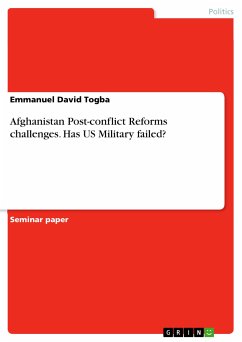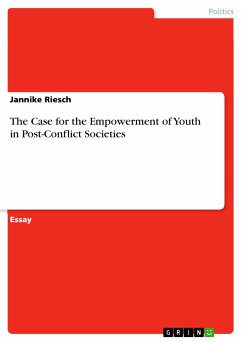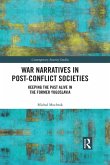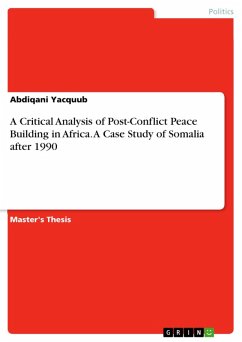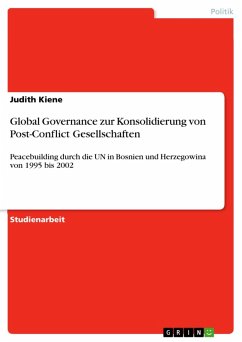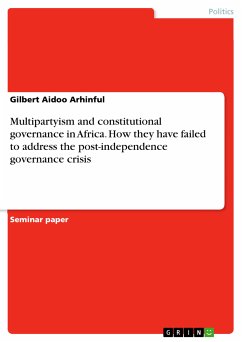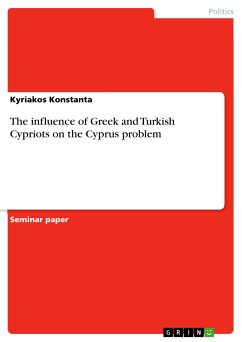Seminar paper from the year 2016 in the subject Politics - Topic: Peace and Conflict, Security, grade: 73, Coventry University (ARTS AND HUMANITY), course: GLOBAL SECURITY, language: English, abstract: Our discussion here is not about the circumstances that led to Afghan war, nor are we concerned about its tumultuous and chequered history ever since the days of Afghanistan's last king Zahir Shah - the son of Nadir Shah. The modern historians and political experts believe it to be one of the golden eras of Afghanistan under King Zahir Shah. Most importantly, one should ask a question: is it that easy for war-waging military to build a nation which is believed to be hanging in to the middle-ages as for as human development, social, economic and political development was concerned (Hoffman, & Fodor, 2010). Therefore, it was always going to be a monumental task from the word goes. One that would require lots of resources at hand, such as human, material, of requirement of regional, international support and of strong political will from all the stakeholders. Let's not downplay the fact that it is by no measure a small country, which finds itself in its tough neighborhood and vice versa. The country has been suffering from war for more than thirty years, ever since the invasion of USSR. However, it is vital to know as to what is post conflict reformation that military is supposed to undertake? It is nothing but the reformation of state and society as a whole (Foust, 2010). This is manifested through ensuring rule of law ameliorating, building up economic institutions and construction of physical infrastructure, and lastly making sure that human rights are respected. In the sense that state and society is completely sensitive of those values of freedom of expression, human dignity and human rights.
Dieser Download kann aus rechtlichen Gründen nur mit Rechnungsadresse in A, B, BG, CY, CZ, D, DK, EW, E, FIN, F, GR, HR, H, IRL, I, LT, L, LR, M, NL, PL, P, R, S, SLO, SK ausgeliefert werden.

